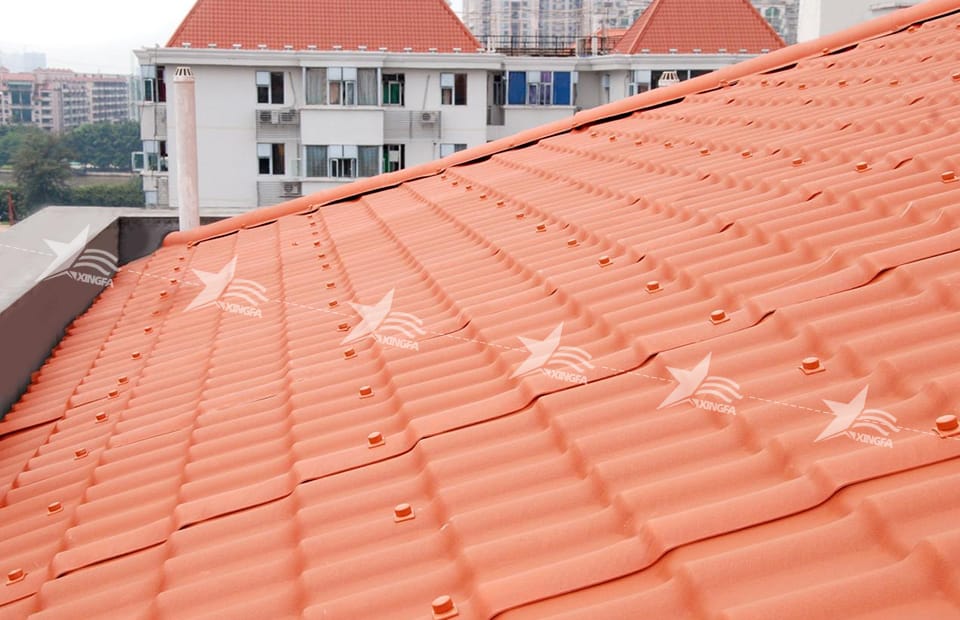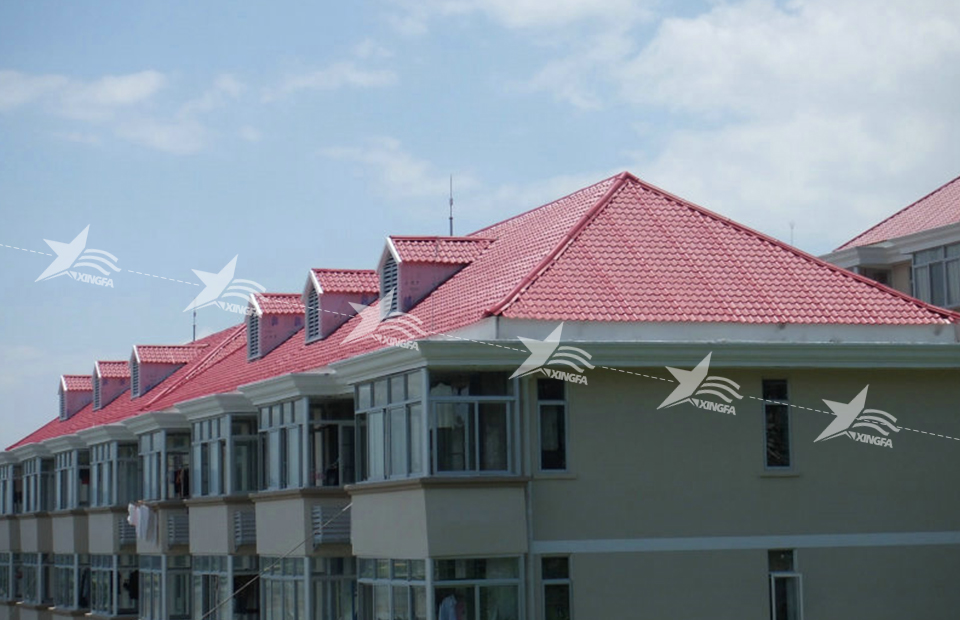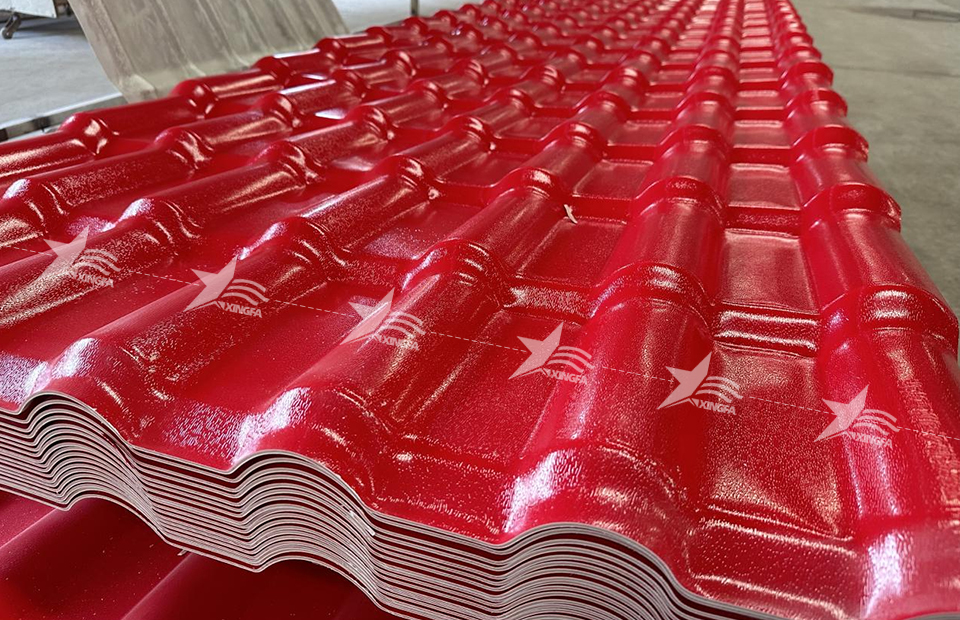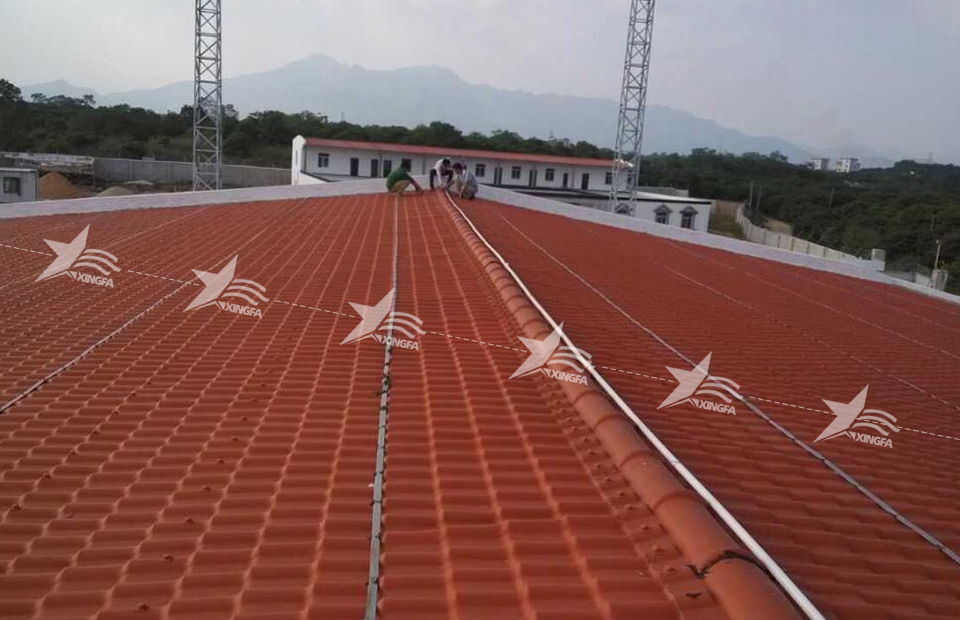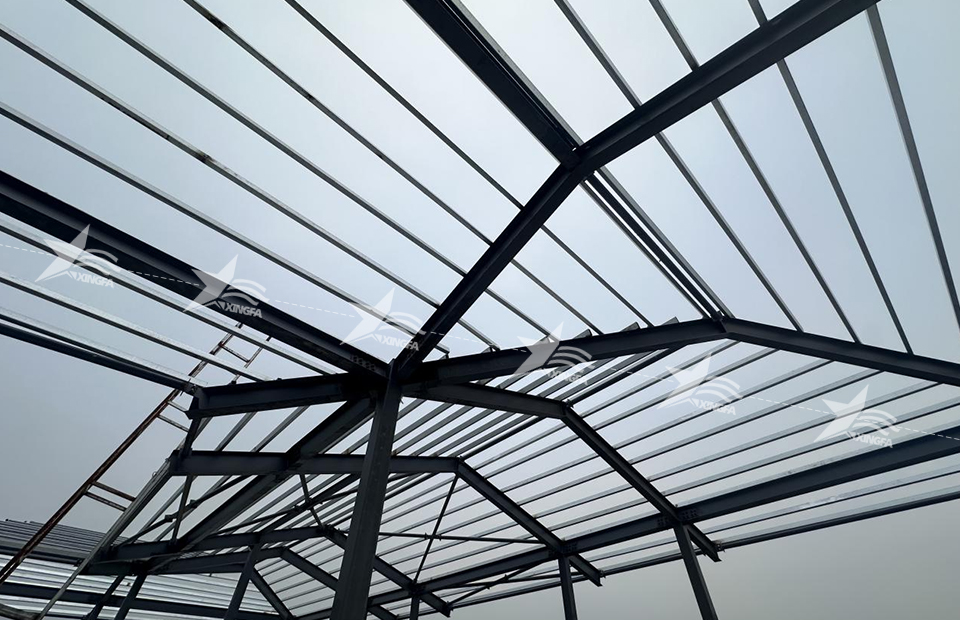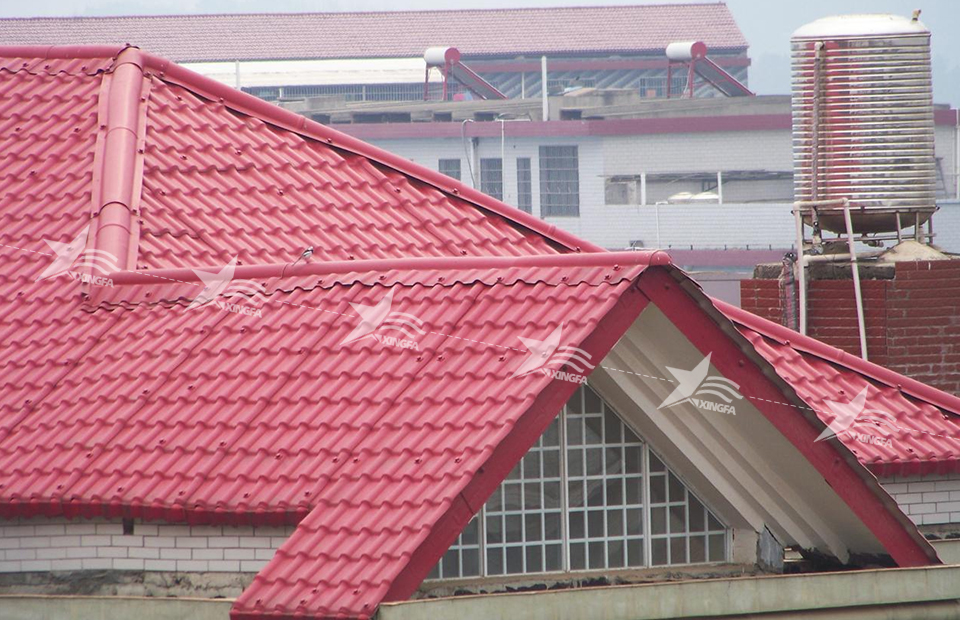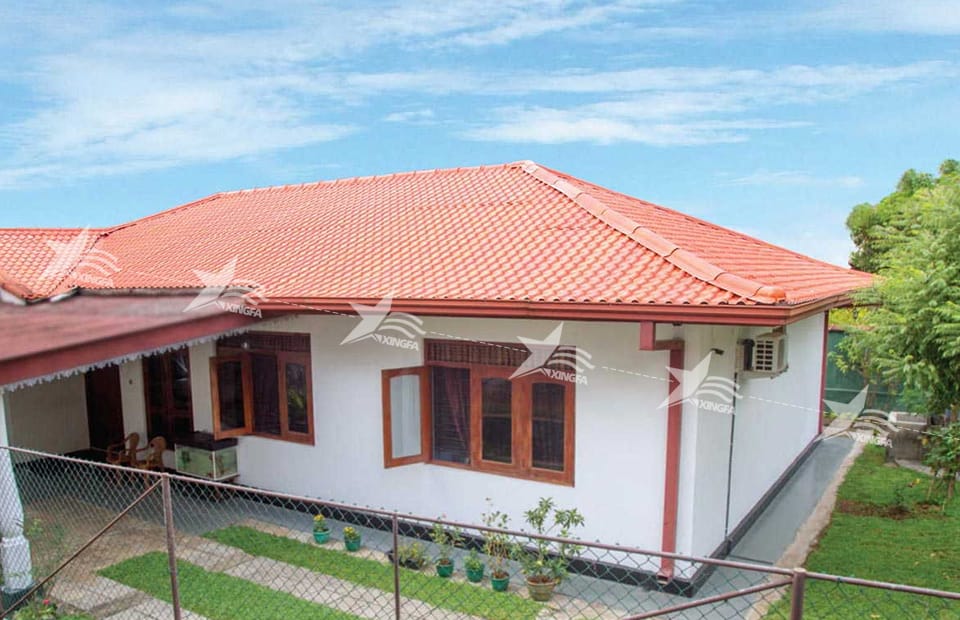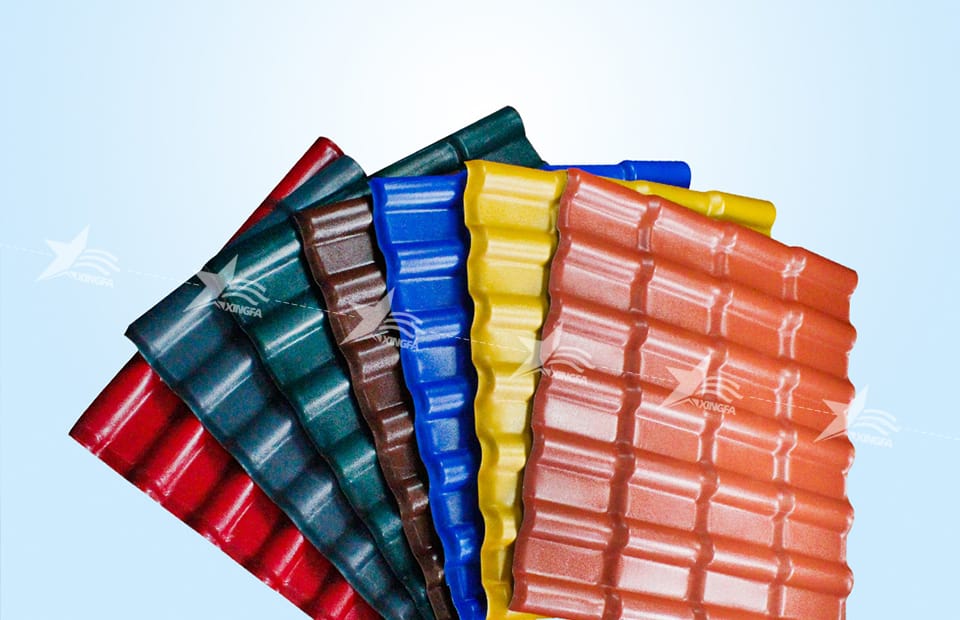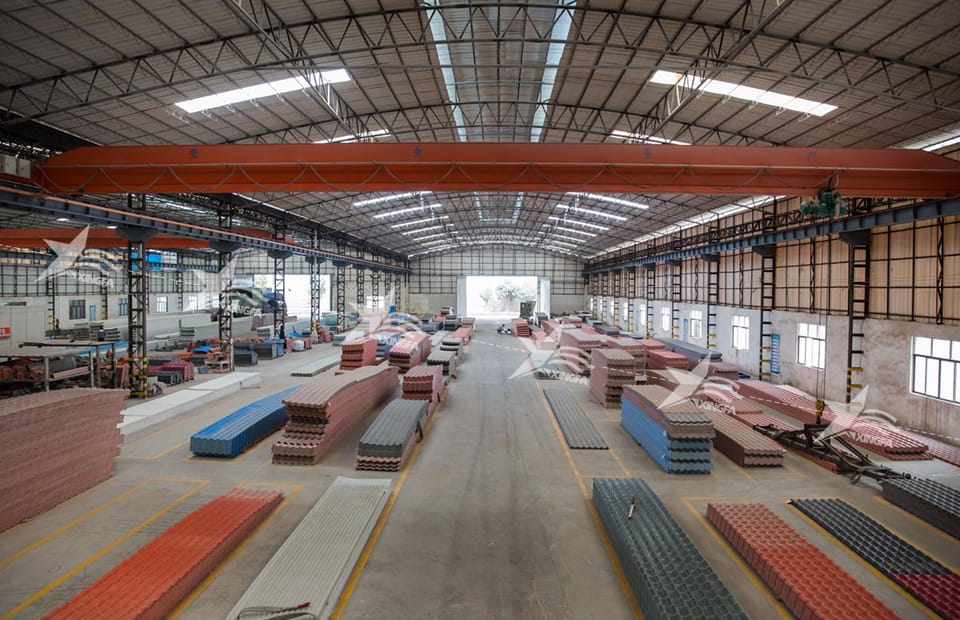When choosing suitable roof building materials, synthetic resin tiles have become the first choice for more and more people. Its excellent waterproofing properties, durability, and easy installation process make it popular for a variety of construction projects. However, an important consideration when installing synthetic resin tiles is the slope of the roof. Today I will introduce to you the slope range suitable for installation of synthetic resin tiles, and discuss the impact of different slopes on roof drainage and material fixation.
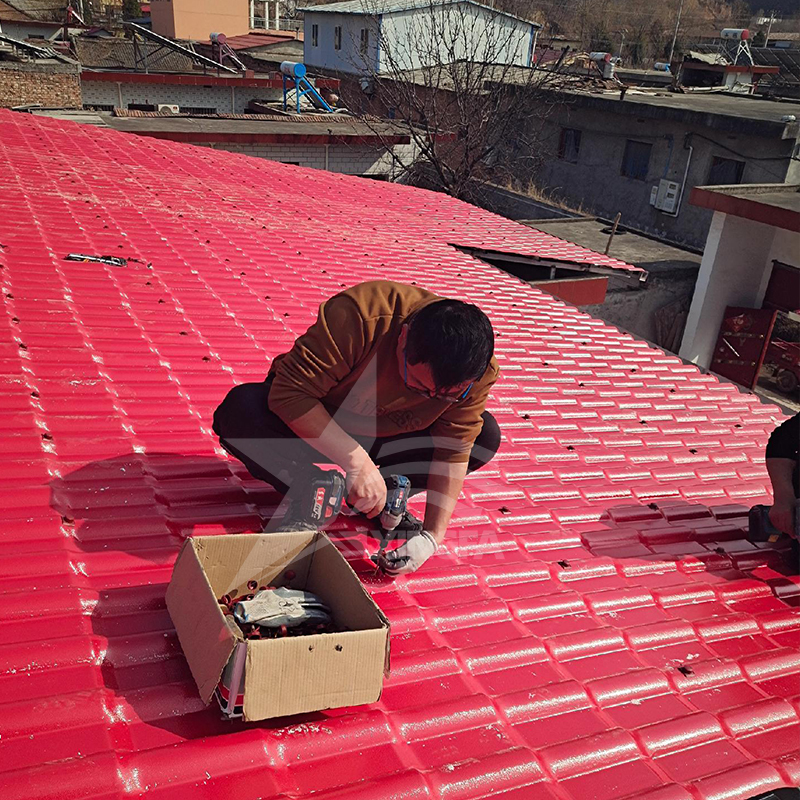
The applicable slope range of synthetic resin tiles
Synthetic resin tiles have excellent waterproof properties, so they can be installed within a relatively large slope range. Generally speaking, synthetic resin tiles are suitable for installation on roofs with a slope of 20 to 80 degrees. This wide range of applications makes it ideal for a variety of construction projects.
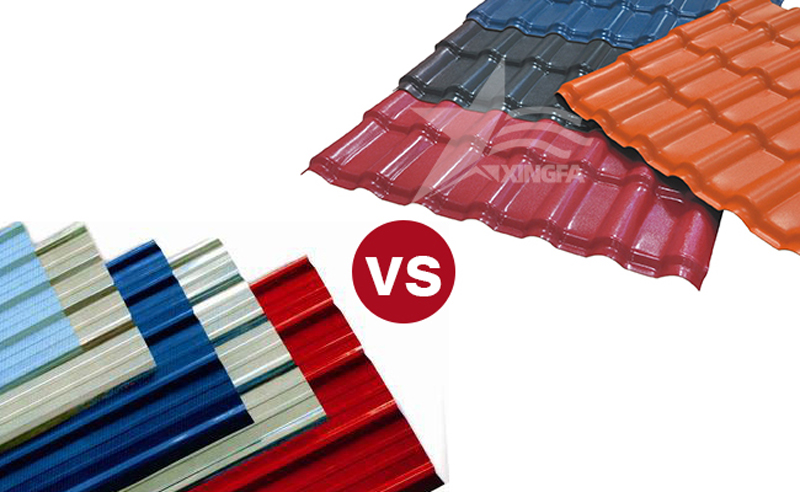
The influence of slope on the installation of synthetic resin tiles
- 1. Low slope (20-45 degrees): When installing synthetic resin tiles on a low-slope roof, an additional waterproof layer is usually not required. This is because the synthetic resin tile itself has the characteristics of being dense and non-absorbent, which can effectively prevent water penetration. In addition, low-slope roofs drain water more easily, reducing the risk of pooling water and leaks.
- High slope (45-80 degrees): When installing synthetic resin tiles on a high-slope roof, it is recommended to increase the number of fixing screws to enhance the firmness of the tiles. Using more screws per square meter can ensure that the synthetic resin tiles can be firmly fixed on the roof under strong winds and heavy rains to avoid damage and falling off。
- 3. Drainage effect: The slope directly affects the drainage effect of the roof. Proper slope can ensure that water flows down quickly and reduce the possibility of water accumulation. In the part of the roof with a large slope (about 60 degrees), the water flows out more easily; at the eaves, the slope gradually slows down (about 30 degrees), allowing the water to flow out smoothly, thereby reducing the occurrence of leaks.
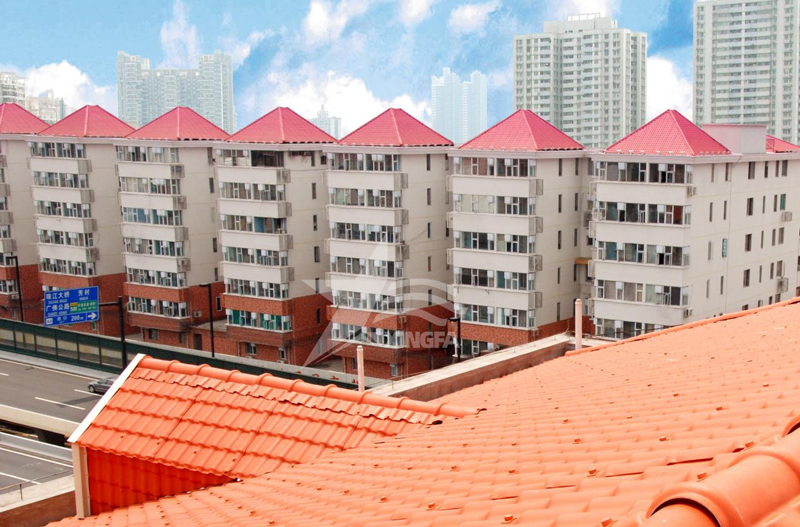
Synthetic resin tiles are not small tiles, but are made one by one, with a large area. The installation efficiency is very high, which can save a lot of labor costs. Moreover, it is simple and fast to transport and install, with relatively few overlaps. It does not require the laying of a waterproof layer when used on roofs with suitable slopes.
Synthetic resin tiles have a service life of up to 30 years, are corrosion-resistant, thermal insulation, sound insulation, waterproof and fireproof, tough and durable, and are the best choice for sloped roofs!

